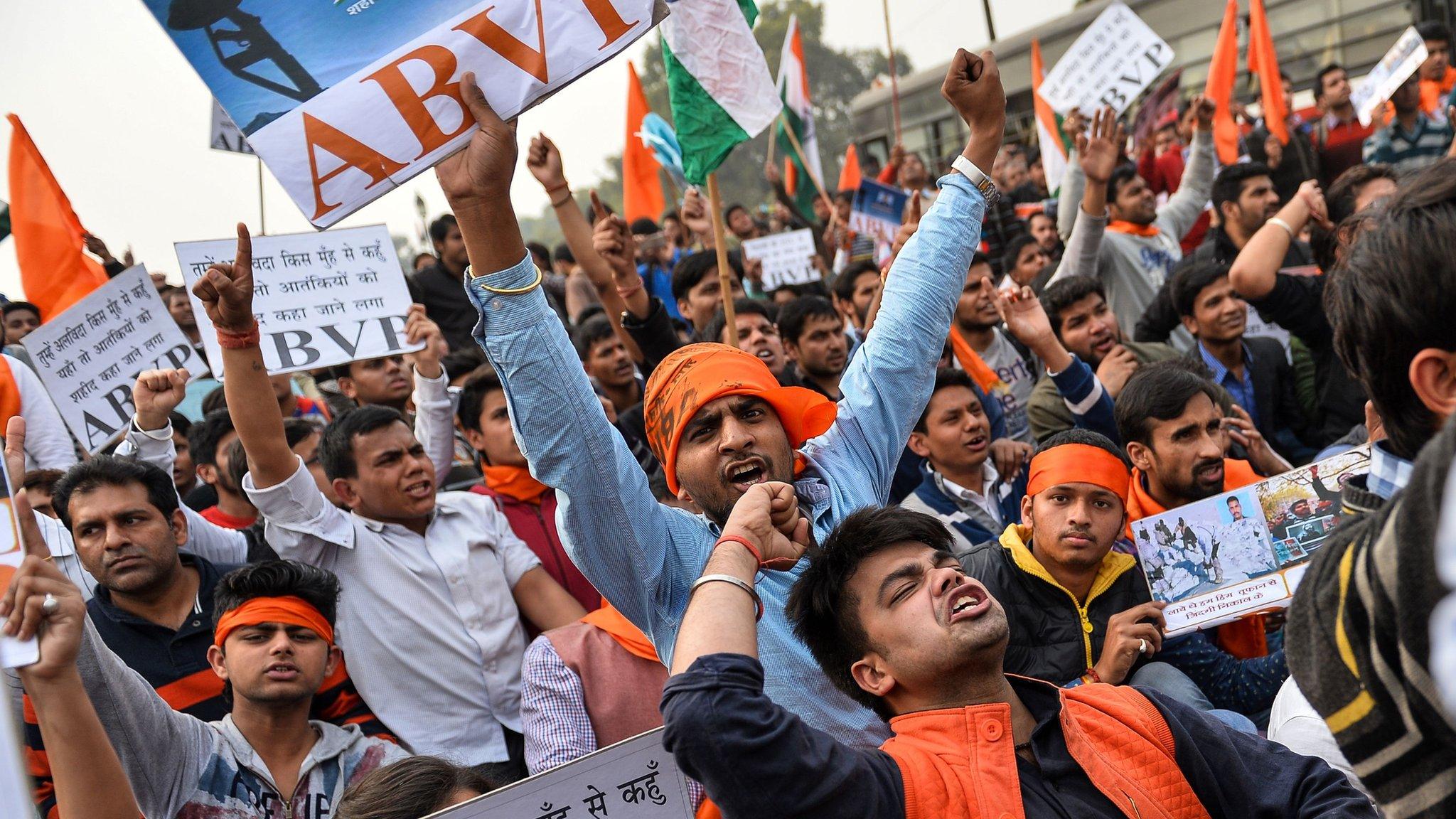Violence in India court after 'sedition' arrest
- Published
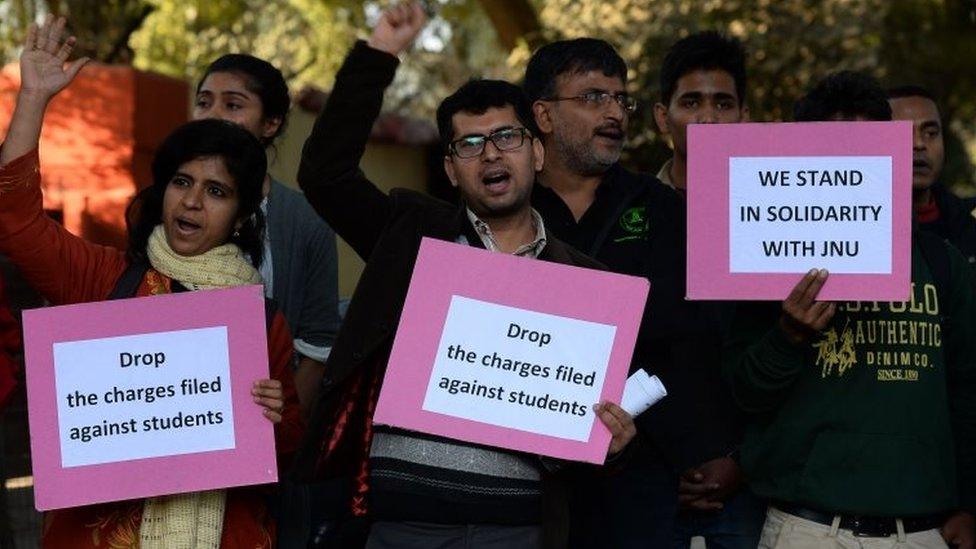
The arrest of Mr Kumar on the charge of "sedition" sparked outraged protests
Violence has been reported at a court where a student leader from a top Indian university is to be produced after being charged with "sedition".
Kanhaiya Kumar from Delhi's Jawaharlal Nehru University (JNU) was arrested after a rally against the 2013 hanging of Mohammed Afzal Guru at which anti-India slogans were allegedly raised.
The university saw protests over the weekend at the "excessive action".
Afzal Guru was convicted over a 2001 plot to attack India's parliament.
He had always denied plotting the attack, which was carried out by Kashmiri militants and left 14 people dead.
Reports from the Patiala House Court in the capital, Delhi, said that a group of men claiming to be lawyers had attacked some JNU students who had come to the court to support Mr Kumar. Some journalists were also assaulted and injured.
Students have accused the Delhi police of doing nothing to stop the violence.
Read more: Why a student was arrested for sedition
The arrest of Mr Kumar on the charge of "sedition" sparked outraged protests from faculty members, university students and sections of the media, who called it an overblown reaction to student action.
A strike call has been issued inside the university, while another 40 universities have extended solidarity to the students.
A column in one Indian newspaper, external said "nothing that JNU students did poses nearly as much of a threat to India as government's subversion of freedom" while another website pointed out, external that the charge of sedition in the case was incorrect since "speech can be criminalised only in situations where it is being used to incite crowds to violent action".
'Anti-national elements'
Political parties have also joined the protest, with opposition groups condemning the government action.
However, angry government ministers have not backed down, and vowed to punish the "anti-national elements".
Home Minister Rajnath Singh, who had earlier tweeted that those who raised slogans against the country "would not be spared", said that the students had the support of Hafiz Saeed, the founder of the Pakistan-based Lashkar-e-Taiba militant group accused of carrying out the 2008 Mumbai attacks.
Mr Singh deleted his tweet after it was revealed that he had based the comment on a tweet made from a parody account.
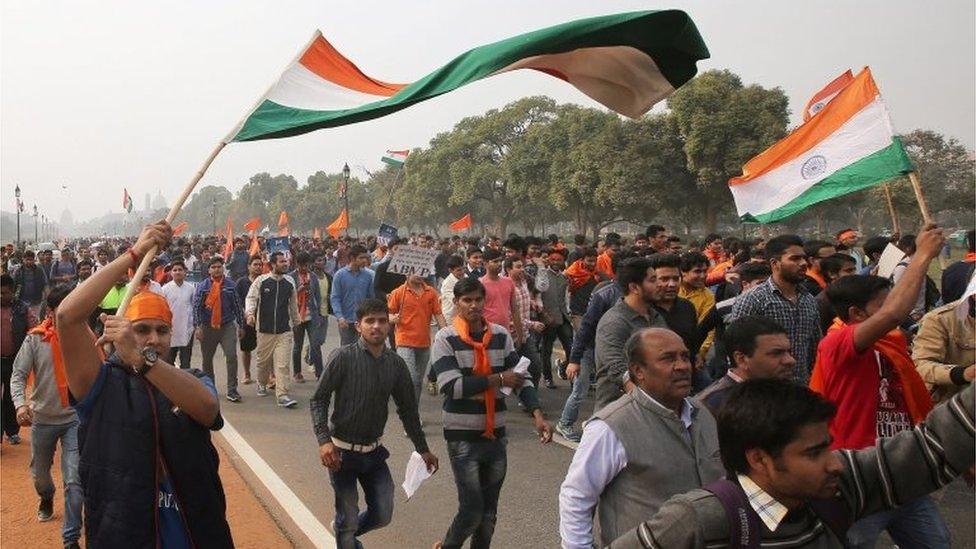
Social media has also overwhelmingly criticised the students
Another of Mr Singh's tweets read, "Those involved in anti-India activities or propaganda will not be spared and those who are innocent will not be harassed."
Most opinion on social media has also been strongly against the students, with the top Twitter hashtag in India reading #CleanUpJNU:
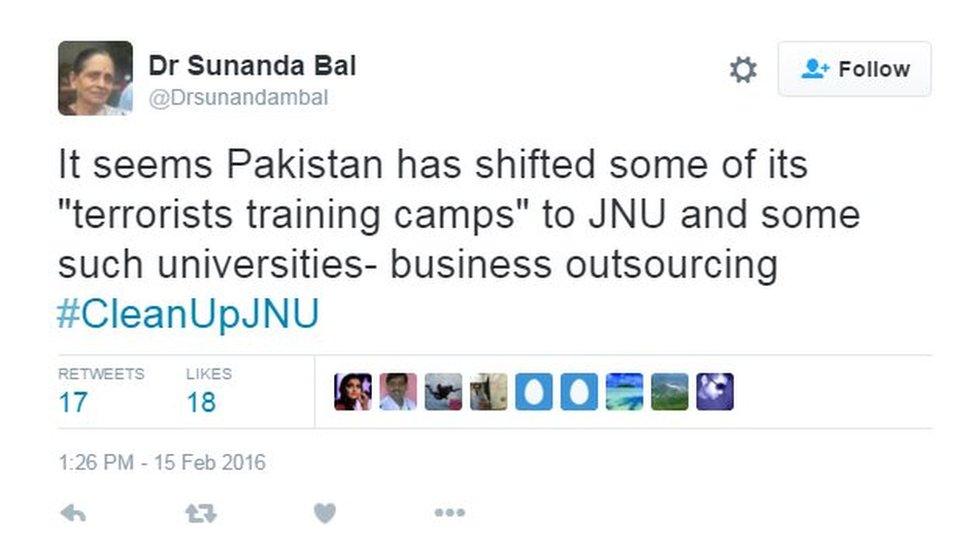
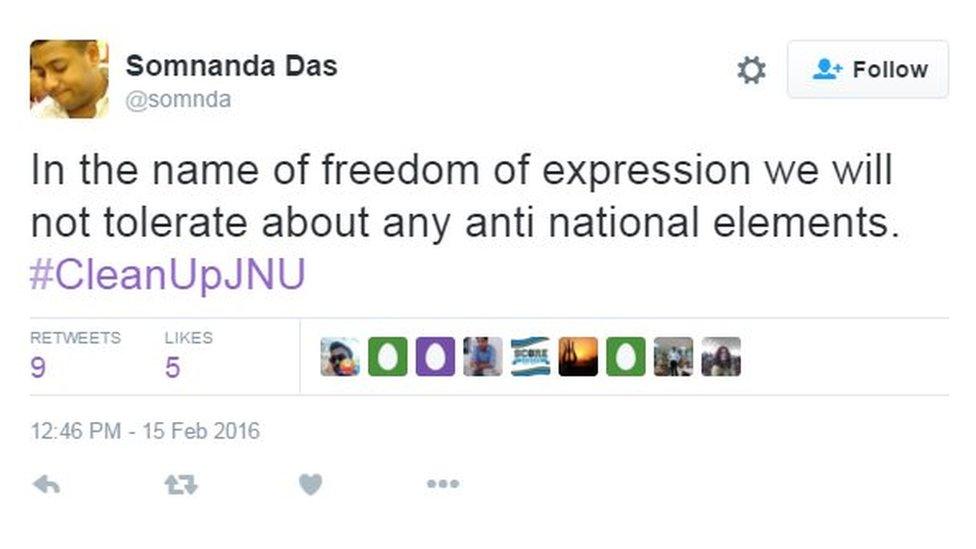
Students from the university came out in large numbers to protest over the weekend.
Mr Kumar, who was placed in police custody for three days, has denied the charges against him.
"I dissociate myself from the slogans which were shouted in the event. I have full faith in the constitution of the country," he was quoted by the Times of India as saying.
- Published15 February 2016
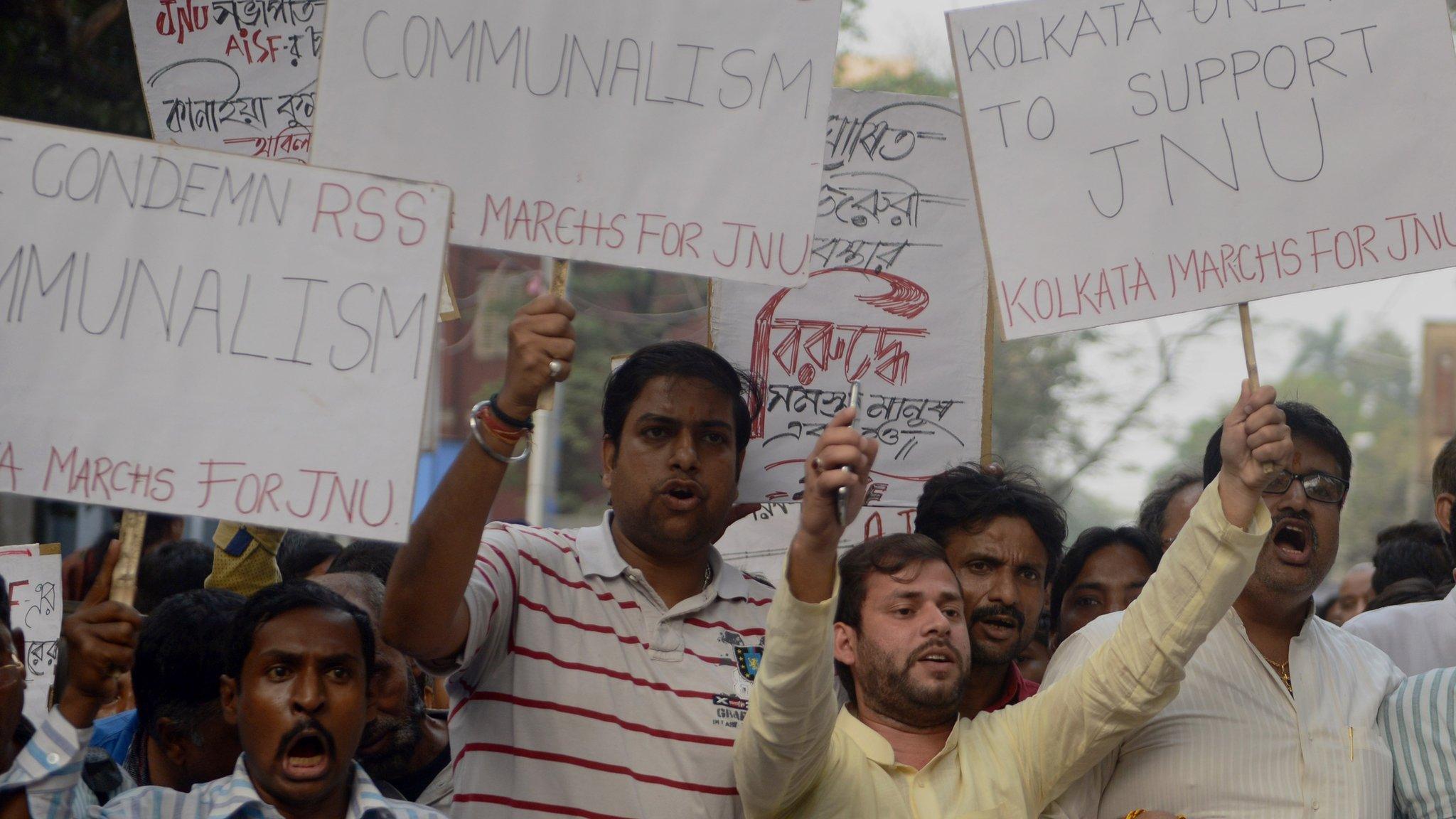
- Published12 February 2016
